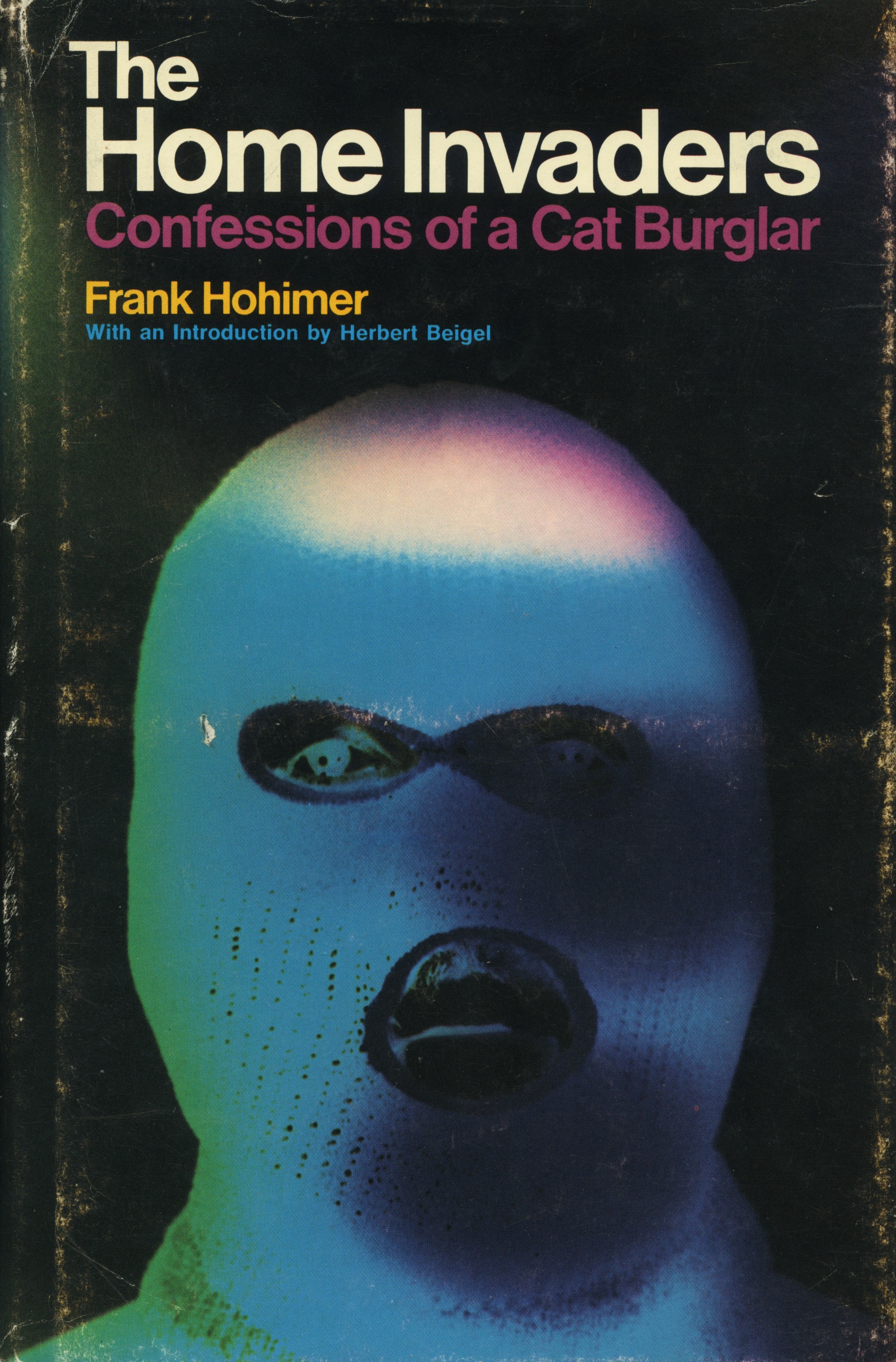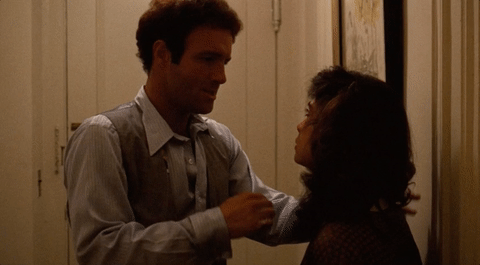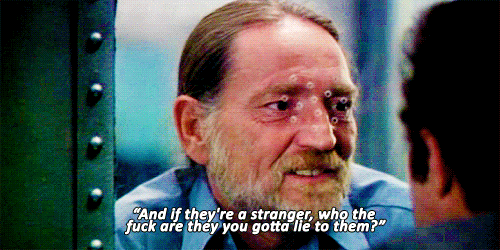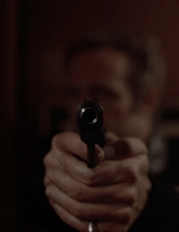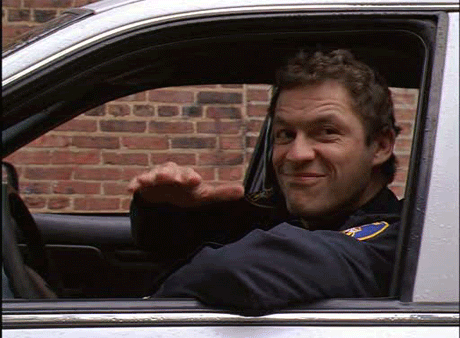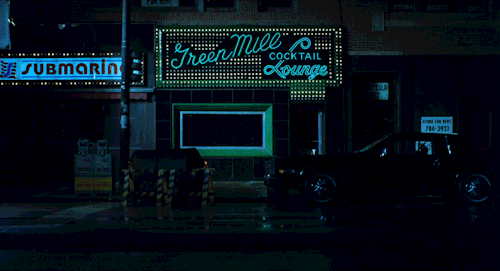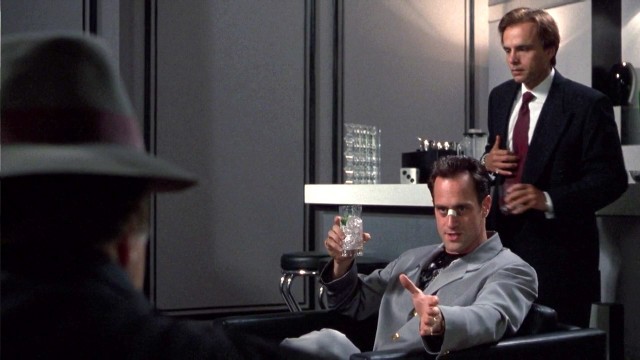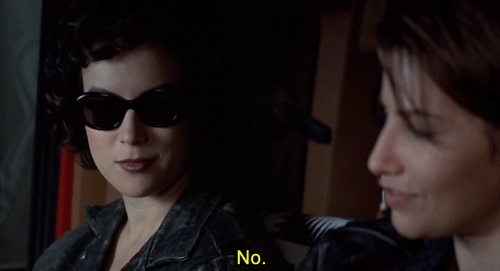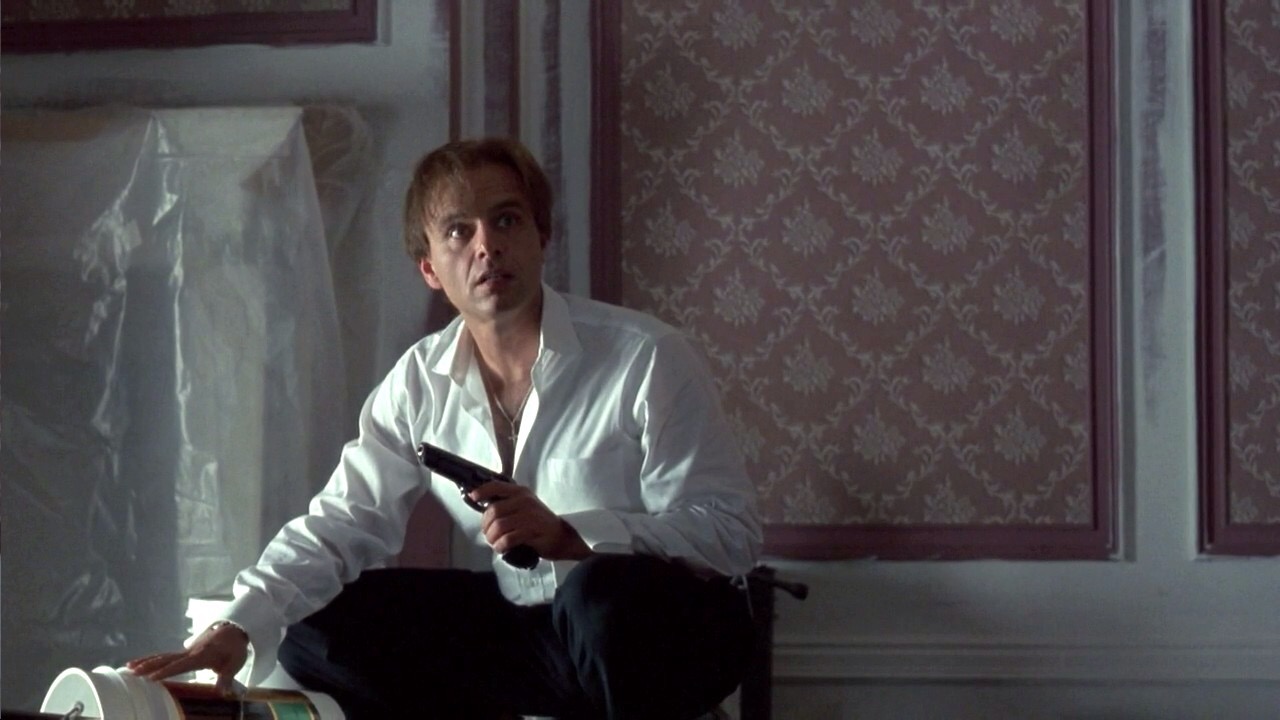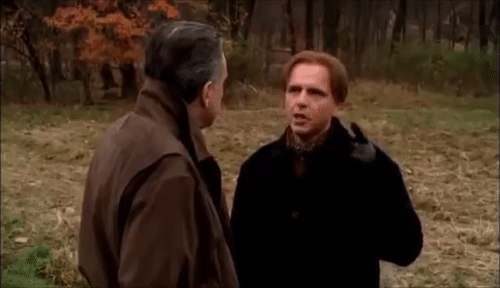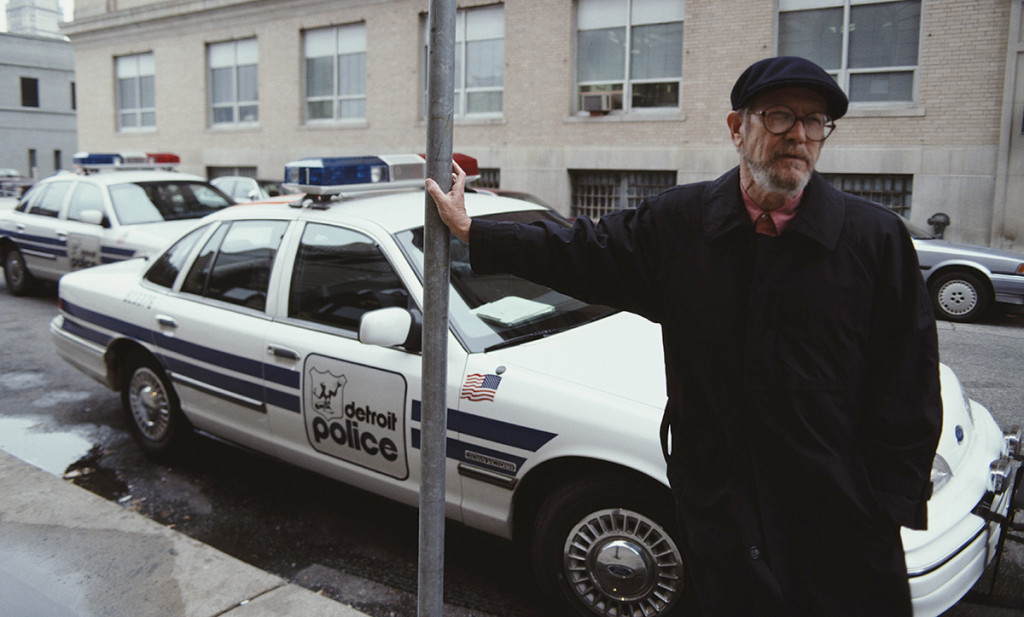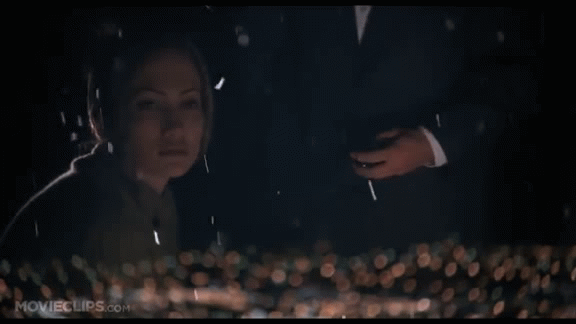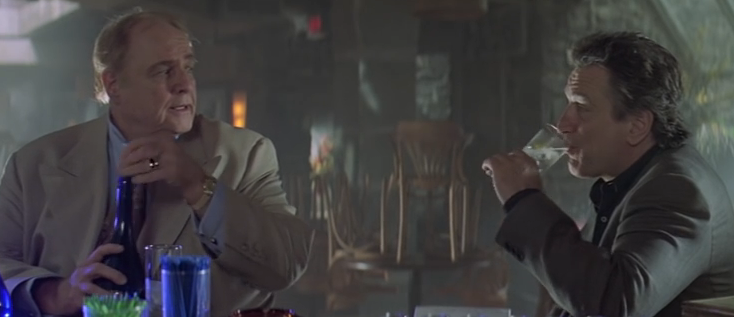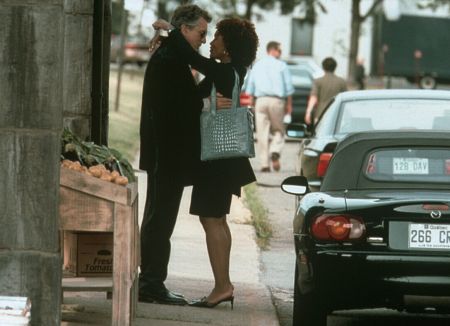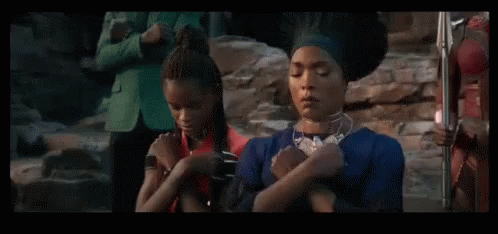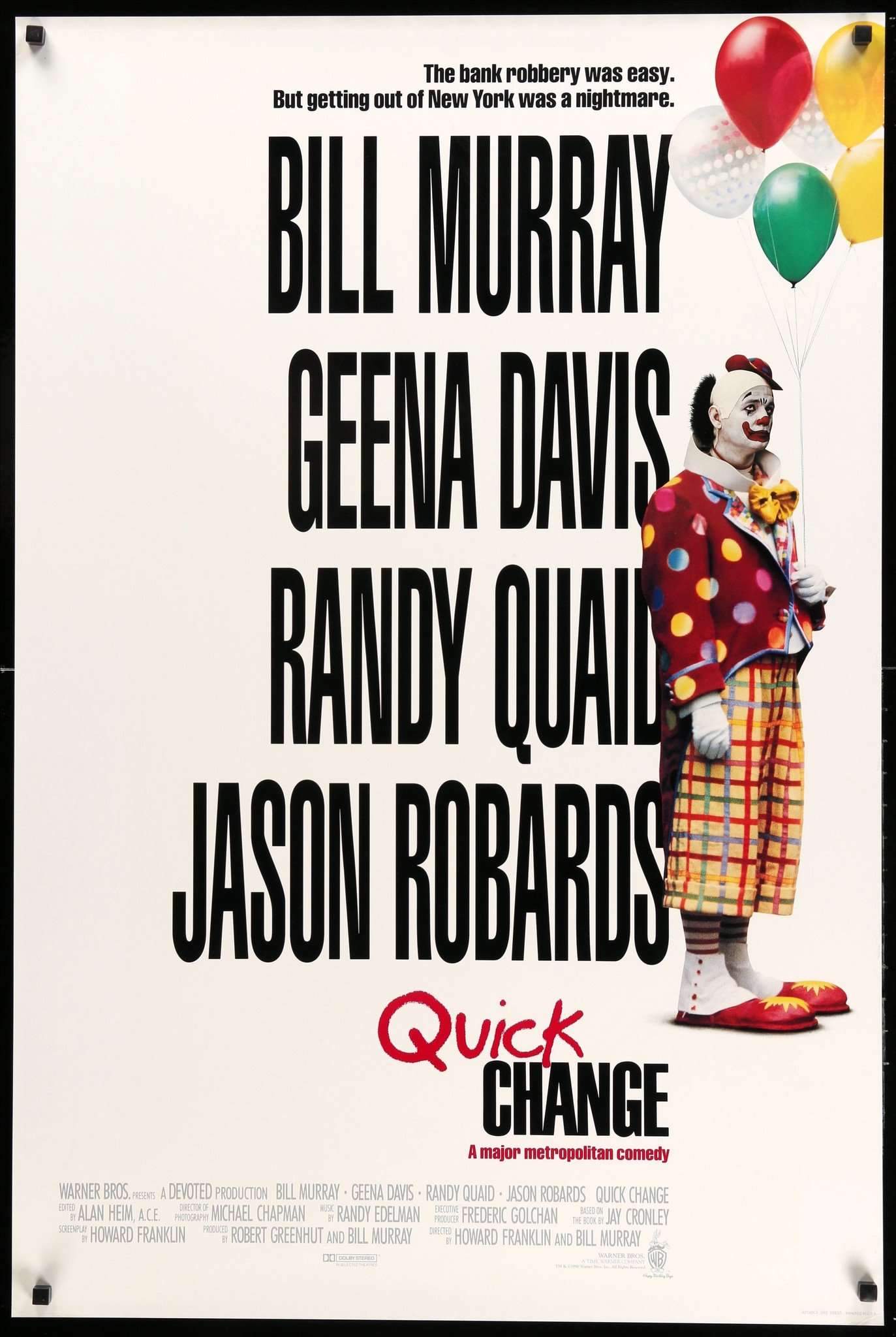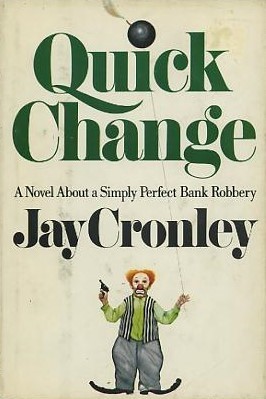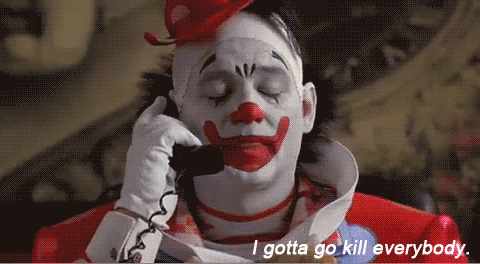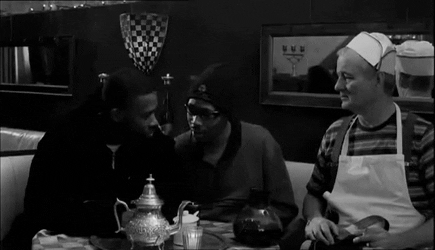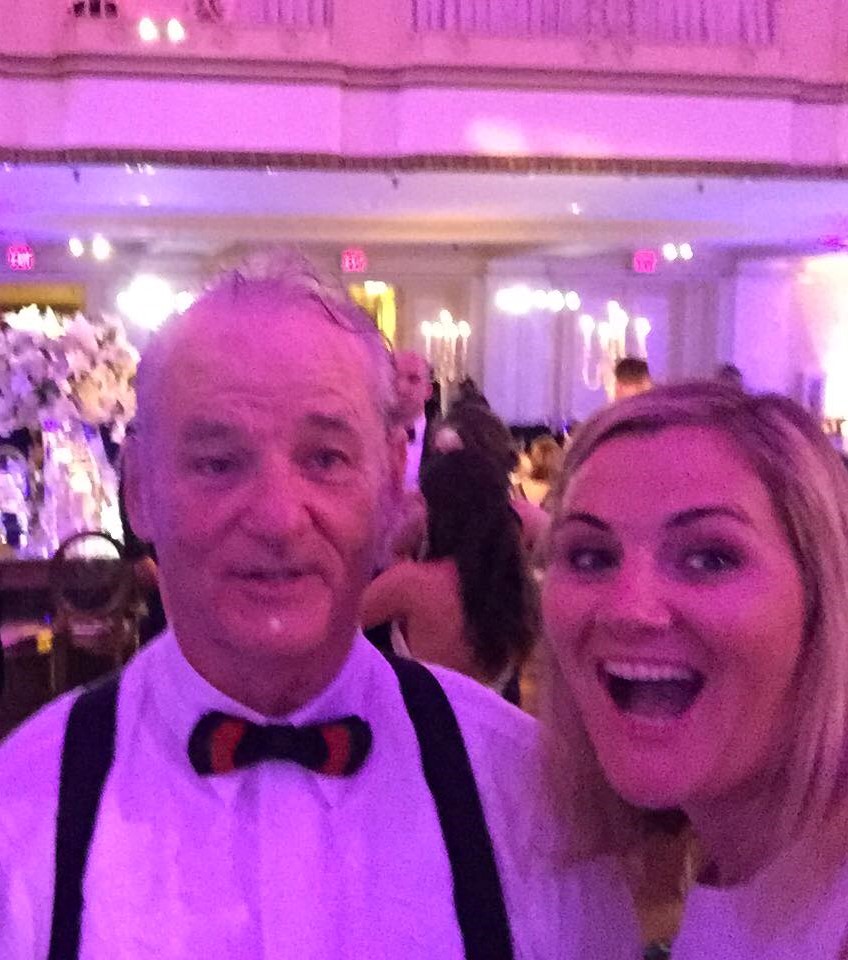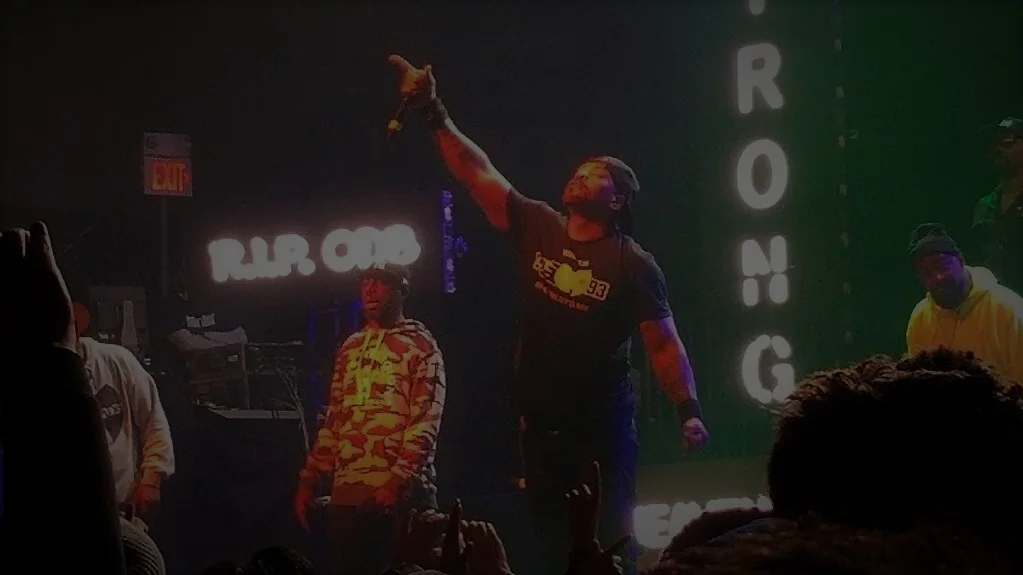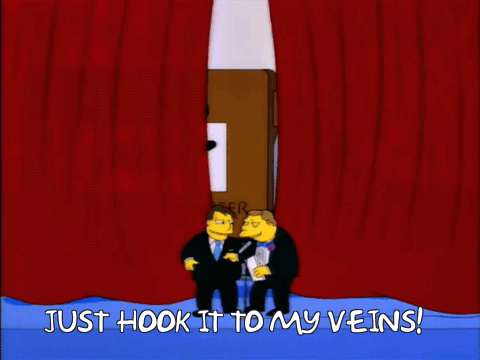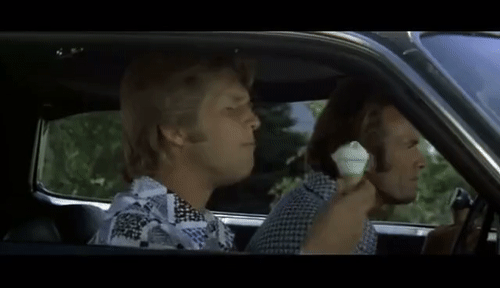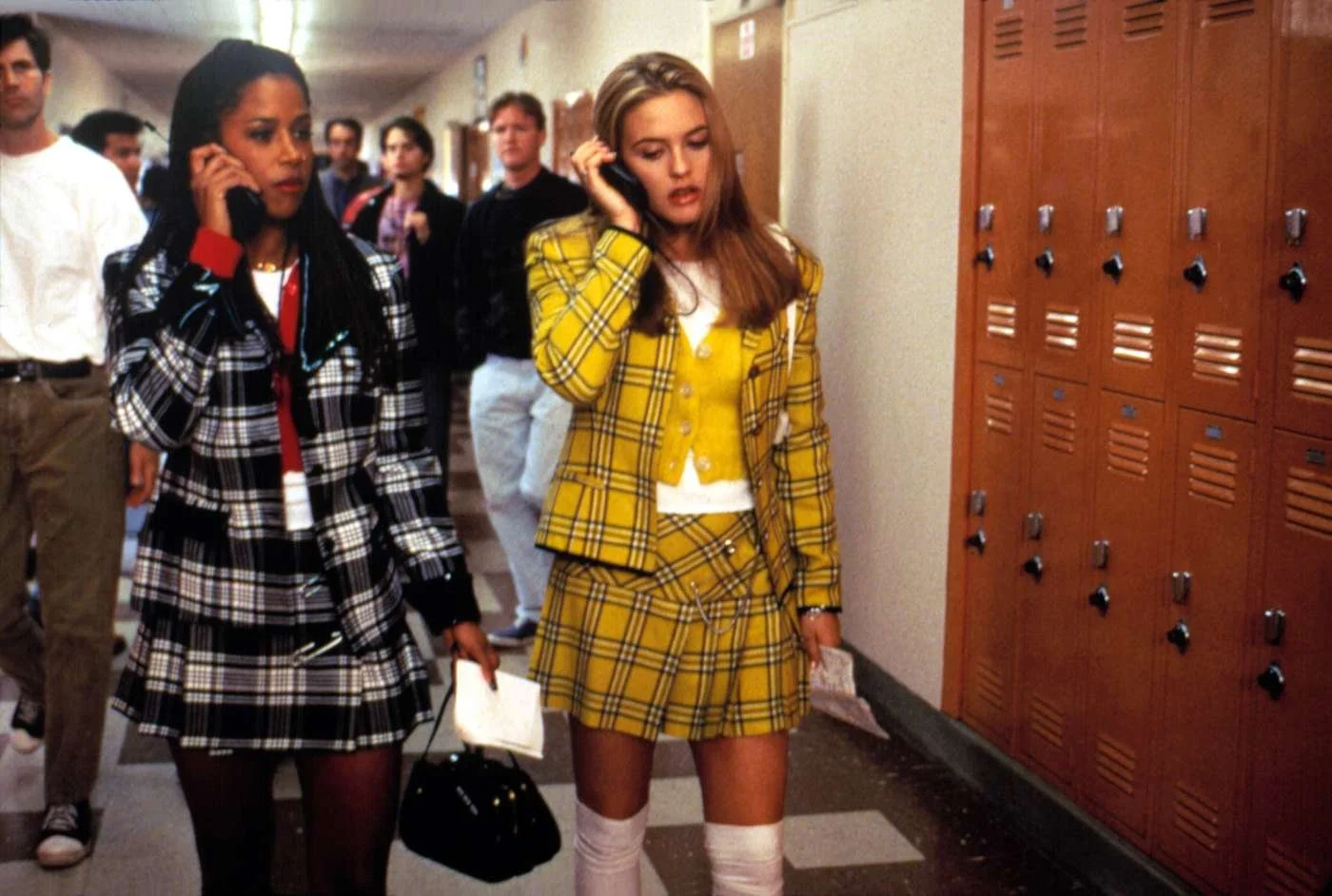Now Steal This: Five Criminally Underrated Heist Flicks
Heist films are probably my top pick when it comes to subgenres of flick.
There’s something about seeing a crime plotted, then develop, while bearing witness to the character development of those involved in executing or stopping it, that makes for the most consistently entertaining movie experience, when you can typically kick back like Nas and “watch a flick illin’ and root for the villain”.
Sure, gangster movies have birthed a few of the very greatest movies of all time (Goodfellas, Godfather I & II to name a few).
But rooting for ruthless gangsters typically means cheer-leading a sociopath.
After killing his best friend and ruining his younger sister’s life, doesn’t Tony Montana deserve that mansion bloodbath?
Heist movies, in the post-Stanley Kubrick/John Houston Modern Era, are more likely to be populated by characters you can relate, who just-so-happened to take a profession that’s off the legal societal path, with less pathos and homicidal wrath. But even when that’s not the case, we’re still in for a captivating crash.
We’ve skipped the pre-1980 canonical classics of the genre (The Killing, The Thomas Crown Affair, The Italian Job, The Taking of Pelham 13, Dog Day Afternoon).
We also salute, but swerved for this post’s purposes past some later favorites deemed too popular or effusively praised to qualify as ‘underrated’: Inside Man, Point Break, Set It Off, Heat, Jackie Brown, The Bank Job, A Fish Called Wanda, Snatch, The Town, The Usual Suspects, Reservoir Dogs, Ocean’s 11).
For Categorical Reference:
Caper: Sentence Summary
Blueprint: Writer
Architect: Director
Co-Conspirators: Lead Actors
Cohorts: Supporting Cast
Thieves: Supporting Cast Who Steal Scenes
Theme Music: Soundtrack
Slick Talk: Best Quotes
Body Count: Onscreen Deaths
Steals From: Earlier films that influence this one.
Robbed By: Subsequent movies it inspires later.
Statute of Limitations: Themes that might be viewed differently in 2019.
Loose Ends: Random Fun Facts
Box Office Booty: Commercial Success (or lack thereof)
Victor’s Spoils: MVP of the movie
Without further ado, our SPOILER-FREE breakdown of “Five Criminally Underrated Heist Flicks” on The Five Spot.
Thief (1981)
Caper: Coming closer to his dream of leading a normal life, a professional safe-cracker agrees to do a job for the Mafia, who has other plans for him.
Blueprint: Frank Hominer (book) & Michael Mann (script)
Architect: Michael Mann
Co-Conspirators: James Caan, Tuesday Weld
Cohorts: Willie Nelson, Jim Belushi, Dennis Farina, Robert Prosky
Thieves: Let’s be real, James Caan is in every scene of this movie. Nobody is stealing a scene from James Caan during his heyday, particularly not in this one, where he’s chewing scenery like Sonny Corleone biting his own hand.
If anyone comes close, by the sheer surprise, it’d have to be Willie. But when Caan isn’t talking, the spicy speech delivered by Robert Prosky’s Leo is as grimy as it gets.
Theme Music: German electronic music pioneers Tangerine Dream do the whole thing. The end result is a weird eighties-synth-driven-impending doom vibe, that actually garnered a 1982 Razzy nomination for Worst Musical Score. It’s not that bad, it works in the film’s context, but I also would never pretend you can play this loudly in your car with windows down and avoid looking like a total creep.
Slick Talk:
“Lie to no one. If there’s somebody close to you, you'll ruin it with a lie. If they're a stranger, who the fuck are they you gotta lie to them?-Okla
“I am the last guy in the world that you wanna fuck with”-Frank
“Look, you wanna pinch me then pinch me... I'll be out in 5 minutes. If not, GET THA FUCK OFF MY CAR!”-Frank
Statute of Limitations: Leo telling Frank about his family plan.
Body Count: Double Digits, Explosively.
Steals From: Butch Cassidy and the Sundance Kid, The Jericho Mile
Robbed By: Miami Vice, To Live and Die in L.A., Heat, The Score
Loose Ends:
This is the acting debut of then-Chicago-police-officer Dennis Farina (RIP), who went on to work with Michael Mann in television on Miami Vice and Crime Story, before becoming a well-known character actor in film.
James Caan considers Thief, and its diner scene specifically, to be the best acting of his entire career, and favorite film besides The Godfather.
The Green Mill Lounge, a front for Frank in the film, but a real Chicago jazz/cocktail bar once frequented by Al Capone, remains in business today.
Box Office Booty: the 62nd highest-grossing US film of 1981
Victor’s Spoils: Michael Mann
Yes, that might seem contradictory, since it was stated above that James Caan dominates in every scene and considers Thief to be his best piece of acting.
But Caan’s career as a force-of-nature in film essentially ends here, as he spends the rest of the eighties in a suspended state of semi-retirement, cocaine-psychosis, and grief over the loss of his sister to leukemia who was also his best friend and manager, six months after Thief was released. When Caan next causes a ripple on the pop-cultural radar, it’s as a bed-ridden captive of Kathy Bates in Misery.
Michael Mann, on the other hand, sets an auteur template with Thief that while even not being commercially successful here, proves fruitful going forward in more popular fare he writes, directs and produces with Miami Vice, Manhunter, The Last of the Mohicans, The Insider, Collateral, Heat, and Ali.
He also paints a neon-lit but still gritty picture of Chicago that you don’t often see in other films shot in or around the city, particularly in the eighties when Chicago was the backdrop for countless John Hughes films, or other suburban comedic fare like Ferris Bueller’s Day Off and Adventures in Babysitting.
Not bad for an unknown documentary director making his feature film debut.
Bound (1996)
Caper: Corky, a tough female ex con and lover Violet concoct a scheme to steal stashed mob money and pin the blame on Violet's crooked boyfriend Caesar.
Blueprint: The Wachowskis
Architect: The Wachowskis
Co-Conspirators: Gina Gershon, Jennifer Tilly
Cohorts: Joe Pantoliano, Christopher Meloni, John Ryan, Richard Sarafin
Thieves: Does Joey Pants count? Because he CRUSHES in this. Bound was when things went from “oh, it’s that guy!” from Midnight Run to “wow, Joey Pants is joining the cast of The Sopranos?!?” in 2001, after Bound found an audience on pay-cable during the late nineties. Christopher Meloni plays the kind of memorable meathead that would land him in OZ, then L&O: SVU, but saying he steals scenes from Pantoliano here would be overselling it. There’s not a lot of actors doing heavy lifting beside the principle players, while the action mostly takes place inside a single apartment.
Theme Music: “I Never Loved a Man (The Way That I Love You)” by Aretha Franklin (GET IT?!?), “Hallelujah (I Love Her So)” by Ray Charles, “She’s a Lady” by Tom Jones, and a score by Don Davis
Slick Talk:
You know what the difference is between you and me, Violet?-Corky
“No.”-Violet
“Me neither.”-Corky
“I'm a dead man, Johnnie? I'm a fucking dead man? Guess again, Johnnie. Who's the dead man? Who? Who's dead, fuckface? Who? Who? I can't hear you, Johnnie. Guess again. Take another guess, Johnnie. Take another fucking guess.”-Ceasar
“You planned this whole thing. You dropped that earring down the sink on purpose, didn't you?”-Corky
“If I say yes, will you take your hand away?”-Violet
“No.”-Corky
“Yes.”-Violet
“If there's one thing I can't stand about sleeping with women, it's all the fucking mind-reading.”-Corky
Statute of Limitations: This film was billed as being written/directed by The Wachowski Brothers, who have since become The Wachowski Sisters.
Steals From: Double Indemnity, The Treasure of the Sierra Madre, North By Northwest, Blood Simple, Reservoir Dogs
Robbed By: The Matrix, The Sopranos, Palmetto, Boys Don’t Cry, Blue Is the Warmest Colour
Loose Ends:
This was the movie that convinced the studio to green-light The Matrix.
Several major studios expressed in making the movie on the condition that the Corky character was changed to a man. The Wachowskis refused.
Violet was supposed to be played by Linda Hamilton before a schedule conflict.
Author Susie Bright, aka Susie Sexpert, was brought aboard by The Wachowskis to be a love-scene consultant, she also ended up making an acting cameo, while the bar scenes are mostly populated by her friends.
Jennifer Tilly went on to become the most decorated and well-compensated professional poker player in the history of celebrity.
Gina Gershon, filming this and Showgirls in the same year, was clearly pushing all her career chips to the middle of the table here.
Box Office Booty: $6 Million Budget, $3.7 million, 161st out of movies released in 1996.
Victor Spoils: The Wachowskis
You read this is the reason The Matrix got made, right?
This ended up being a peak moment for both Gina Gershon and Jennifer Tilly, probably even Joey Pants as well, though I wouldn’t argue with Ralph Cirella.
All three put in yeoman’s work but some of the other people mentioned as potential actors in their respective roles probably could have pulled this off.
This movie is a wrong-headed b-movie soft-core mafioso mess in the hands of anyone else but The Wachowskis, whose vision here is crystal-clear. This was before things got murkier, professionally and perhaps personally, after they broke through with The Matrix, then began working with budgets as big as their ideas, making mostly dystopic sci-fi/fantasy messes (The Matrix sequels, V for Vendetta, Speed Racer, Cloud Atlas, Jupiter Ascending) throughout this century.
In retrospect, this makes Bound even more of a miraculous sort of one-off. It’s a pair of sibling auteurs, working in what Soderbergh would call “the art-house ghetto”, filming within a short time window, endowed with minimal financial resources, paying homage to classic cinematic heist/thrillers of the past, but with a depiction of romantic relationship that remains rare in American film.
Out of Sight (1998)
Caper: A career bank robber breaks out of jail, and shares a moment of mutual attraction with a U.S. Marshal he has kidnapped.
Blueprint: Elmore Leonard
Elmore Leonard, “The Dickens of Detroit”, 1925-2013
Architect: Steven Soderbergh
Co-Conspirators: George Clooney, Jennifer Lopez
Cohorts: Ving Rhames, Don Cheadle, Catherine Keener, Steve Zahn, Luis Guzman, Dennis Farina, Albert Brooks, Isiah Washington, Viola Davis, Paul Calderon, Nancy Allen, Michael Keaton, Samuel L. Jackson…should I go on?!?!
Thieves: Isiah Washington’s menacing monologue before the “tussle”, Don Cheadle’s Maurice “Snoopy” Miller testing Steve “Glenn” Zahn’s gangsta in Detroit, Dennis Farina’s Father Knows Best test for Ray Nicolette.
Theme Music: “It’s Your Thing” b/w “Fight The PowSter” by The Isley Brothers, “Spanish Grease” by Willie Bobo, “Watermelon Man” by Mongo Santamaria, “Ain’t That A Kick In The Head” by Dean Martin, plus a killer score by David Holmes.
Slick Talk:
“It's like seeing someone for the first time, like you can be passing on the street, and you look at each other for a few seconds, and there's this kind of a recognition like you both know something. Next moment the person's gone, and it's too late to do anything about it. And you always remember it because it was there, and you let it go, and you think to yourself, 'What if I had stopped? What if I had said something?' What if, what if... it may only happen a few times in your life”. Jack Foley
“You know, in a situation like this, there's a high potentiality for the common motherfucker to bitch out.” Maurice Miller
Steals From: Jackie Brown, From Dusk Till Dawn, Get Shorty
Robbed By: Three Kings, Oceans ElevenTwelveThirteen
Body Count: Double-Digits, with a couple of those quite grisly.
Box-Office Booty: $37 Million US Box Office - $48 Million Dollar Budget=FLOP.
Loose Ends:
Michael Keaton’s Ray Nicolette is a recurring character in a few Elmore Leonard novels turned movies, including Rum Punch aka Jackie Brown (with Keaton) a year earlier in ‘97. Keaton, briefly reprising the role here, appeared in Out of Sight uncredited, and for free, as did Samuel L. Jackson as Hejira Henry.
Cheadle ad-libbed his “potentiality” line in the mansion scene with Clooney.
Jennifer Lopez spent three months in firearm training with federal agents preparing for her role, two years before ever meeting Shyne and Puffy.
The scenes set in Florida prison were actually shot at Angola Prison in Louisiana, 500 actual convicted felons were used as background extras.
Victor’s Spoils: Jennifer Lopez.
Some might say Clooney. And sure, his cocksure charm, coupled with salt-and-pepper-spray-smart-alecky-ness, pays big dividends here. This might be the first movie that convinced us (or at least me) that he was actually a movie star, rather than George the handyman from Facts of Life, Aunt Jackie’s boyfriend Booker on Roseanne, or Dr. Ross on ER. Yes, he had already starred in Batman & Robin and The Peacemaker. And?!?
In the long run as far as Hollywood successes goes, things have worked out more for him, not the least of which is because Clooney is, after all, a man. Not to mention, this displayed Clooney’s appeal in heist films, a creative well he’s gone back to SIX times so far since during his career (Three Kings, Oh Brother Were Art Thou?, Ocean’s Eleven, Ocean’s Twelve, Ocean’s Thirteen, The Monuments Men), while working with Soderbergh as a producer or director TEN more times in the decade following Out of Sight.
All that being said, and despite it being arguably Clooney’s best movie, it’s unarguably Lopez’s best, which admittedly after scanning her subsequent IMDB, is likely saying less. But as Karen Cisco, she truly owns this flick. This is before “J.Lo” was even a thing.
Lopez was only four years removed from Fly Girl status and one year past her Selena breakthrough, with some ensemble trash (Anaconda, U-Turn) in between.
Yet throughout Out of Sight, against a veritable who’s-who of great actors more tailor-fit for this type of topical fare, whether she’s being held hostage in a car trunk, tussling with a prizefighter, spurning douchey suitors in a hotel bar, or sparring with Clooney while steaming up the screen, Lopez wins in every scene.
And the winner is…
JLO by TKO
The Score (2001)
Caper: An aging thief hopes to retire and live off his ill-gotten wealth when a young kid convinces him into doing one last heist.
Blueprint: A bunch of folks no one knows
Architect: Frank Oz, with a Brando assist from Bob De Niro
Co-Conspirators: Robert De Niro, Edward Norton
Cohorts: Angela Bassett, Marlon Brando, Bobby Brown (no, not that one, unfortunately, woulda made the set even more legendary), Jamie Harrold
Thieves: Angela Bassett holds sway with De Niro’s thief character in a way whatshername in Heat could never dream. And Marlon Brando, clearly about thirty years past giving a single solitary fuck, at least appears to be having some fun here, in what became the final performance of his legendary career.
Theme Music: “‘Round Midnight” by Thelonious Monk, “Autumn Leaves (Les Feuilles Mortes)” by Miles Davis , with multiple songs performed and special film appearances by the late great jazz/blues pianist Mose Allison and legendary jazz chanteuse Cassandra Wilson as club entertainers.
Slick Talk:
“How can I be sure you're okay?”-Nick
“I suppose I could fuck you.”-Diane
“That would work.”-Nick
”If you want me to do this, you gotta pay me what's right. It's gotta be that way.”-Nick
[Indignant] “I always pay you what's right.”-Max
“You always think you do. I always know what you pay me. It's not always right.”-Nick
“In all the years you've been doing this, what's the biggest gamble you ever took? On job, the biggest long shot?”-Jackie
“I don't take long shots and I never have”-Nick
“I know you're careful, I'm careful too, that's not what I mean, when you were starting out you must've taken some "flyers" here and there, did something that was a little wild, I'm just curious”-Jackie
“You're smart, talented and you know a few things but talent means nothing in this game if you don't make the right choices, there's plenty of talented people that never see the light of day anymore, this whole thing takes discipline because it's one big long shot and if you don't have the discipline to stay away from the" flyers", the "gambles", or whatever else you want to call a stupid move, then one day you will go down it's inevitable.”-Nick
“When was it you started thinking you were better than me?”-Nick
Statute of Limitations: Norton’s Handi-Man act, a variation on the bag he dipped into for his coming-out party, Primal Fear.
Body Count: Zero
Steals From: The Italian Job (‘68), The Great Muppet Caper, Thief, Midnight Run, Primal Fear
Robbed By: The Italian Job (‘03), The Family, Heist
Loose Ends:
Marlon Brando took to calling Director Frank Oz "Fozzy" and "Miss Piggy" during this movie. Oz has been the voice of Fozzy Bear and Miss Piggy in the various Muppet productions since the beginning. Brando's hazing of Oz over his work with the Muppets got so bad, that Robert De Niro was forced to direct Brando instead, with Oz giving him instructions via headset.
De Niro was repeatedly the victim of practical jokes pulled by Brando during filming, including a remote controlled electronic whoopee cushion.
During breaks, Brando would walk around the set naked because of the warm weather where the film was being shot.
The scene where De Niro accepts Brando’s offer, but only for more money so he can retire, is reminiscent of a scene in Midnight Run where De Niro accepts Joe Pantoliano’s offer, but only for more money so he can retire.
Marlon Brando refused to smile in his last scene in this movie, so his ever-so-slight smile was added in post-production by a computer.
Edward Norton said he did this movie, after Ben Affleck turned it down to film whatever shitty movie he was doing for a check at the time (we’re guessing Pearl Harbor, or that final movie they let Billy Bob Thornton direct based on the timeline), solely for the purpose of having his name next to Marlon Brando and Robert De Niro on a movie poster, with Angela Bassett becoming an added bonus. Makes sense. It also makes sense that Norton is sporting an Orioles’ hat in the final stretch of the movie, seeing as how he was a lifelong Bmore sports fan, born and raised in nearby suburban Columbia, Maryand. Norton also went to Camden Yards to take batting practice with the team while promoting this movie.
In a 2001 interview with The Guardian, Angela Bassett said De Niro was a good kisser and appreciated how respectful and accommodating he was, while also making sure he kept his breath minty fresh between takes.
Box Office Booty: $68 Million Budget while shooting on location in Montreal, $71 Million Domestic Gross.
Victor’s Spoils: On the set, sounds like Brando.
In the flick, it’s a coin-flip, but we’ll go De Niro.
It’s been established that this was Brando’s final film.
But was it De Niro’s last good one in a lead role?
Check the IMDB, B.
18 years later, arguably so.
And while we’re on the subject of careers, where did that Hall of Fame trajectory Ed Norton had been on in ‘96 to 2001 go?
He made a classic right after this (25th Hour), then arguably one more in ‘06 (The Illusionist), but other than those he’s been a no-show.
Did their careers contract a virus Brando brought back from The Island of Doctor Moreau?!?
Who’s to know?
But Angela B’s fate suggests it may be curable with some Wakandan vibranium glow.
Quick Change (1990)
Caper: Three thieves successfully rob a New York City bank, but making the escape from the city proves to be almost impossible.
Blueprint: Jay Cronley, Howard Franklin, Bill Murray
Architect: Howard Franklin, Bill Murray
Co-Conspirators: Bill Murray, Randy Quaid, Geena Davis
Cohorts: Jason Robards, Bob Elliott, Tony Shaloub, Phillip Bosco, Stanley Tucci, Phil Hartman.
Thieves: Robards’ long-in-the-tooth police officer trying to wrap one last case, Bob Elliott’s I’m-too-old-to-want-smoke-with-a-gun-wielding-clown security guard, Phillip “Exact Change” Bosco’s stickler-for-the-rules bus driver, Tony Shaloub’s geographically and communication-challenged cabbie, and every single person involved in the ridiculously random joust scene.
Theme Music: “L-O-V-E” by Nat King Cole, “Baila Mi Ritmo” by Irake, “Tive um coração, perdi-o” by Amalia Rodrigues, “Quick Change” by Randy Edelman.
Slick Talk:
“What the Hell kind of clown are you?”-Bank Guard
“The crying on the inside kind, I guess.”-Grimm
“Nude women! Nude women!”
[Grimm dressed as a clown walks by]
“Clowns Welcome! Clowns welcome!”-Street Barker
"If I could sleep ten days and nights in a rice paddy, I could certainly last in this lousy bank." This is what the animal said to us! He says to Ms. Cochran here:
[makes humping motions at Phyllis]
"Baby! Up your butt with a coconut!" I think he was prepared to do it! Except I saw no coconut. He, uh, he had no coconut to my knowledge.”-Grimm
”It's bad luck just SEEING a thing like that!”-Loomis[Johnny holds a gun to Grimm's back]
“This ain't my dick in your back!”-Johnny
“That's a relief.”-Grimm
Statute of Limitations: New York City looking like this. Also arguably some of the ethnic humor, though it plays more surrealist than stereotypical, harking back to the days when the outer boroughs weren’t yet air-brushed, with newly assigned commercial real-estate neighborhood-softening names.
Body Count: None.
Steals From: Dog Day Afternoon, After Hours, Ghostbusters, The Last Detail, The Out-of-Towners
Robbed By: Murray’s transition from manic, aggressive eighties comedy blockbuster, eccentric goofballs, to droll Wes Anderson/Jim Jarmusch/Sofia Coppola hipster-deadpan-potentially-dramatic-or-comedic late-career Murray and the Spike Jonze-directed “What Up, Fat Lip?” video.
Loose Ends:
Something Wild’s Jonathan Demme was originally slated to direct, but was a little caught up crafting his career-altering, Oscar-winning Silence of the Lambs.
After Demme was out, Murray decided to direct for the first and last time.
While doing press for Quick Change, Murray was asked why he’d taken so much time off between Ghostbusters and Scrooged. He replied, “Well, because I have a lot of other interests,” and then said, “Dot-dot-dot…sleeping and watching TV.”
Box Office Booty: Opened in 7th place, making less money at the box office in 1990 than Andrew Dice Clay’s career-ending Adventures of Ford Fairlaine.
Victor’s Spoils: Bill “Groundhog Day, Ghostbustin’-ass” Murray.
Regarding the commercial failure of Quick Change, Murray opined in 1991:
”“I sound pretty cool now when I talk about it, but I could have killed someone back then.
It was like they killed my baby. It was a terrible time for me; I was completely baffled by what happened.
The Warners marketing department didn’t do its job. They knew weeks in advance that the public wasn’t aware of the movie. They track these kinds of things, and they knew that more people were aware of the capital of Burma than were aware of our movie.
Instead of doing something about it, or pulling it from the schedule and releasing it a few months later when it could have had a chance, they just opened it and let it disappear.”
In retrospect, this might have freed Murray from the pressure of chasing eighties success, instead opting to carve out a cult-hero existence spent popping up in random public places, occasionally making a movie when he finally answered a voicemail left on his land-line answering machine.
Dan Akroyd and Chevy Chase never found anything comparably close to Murray’s late-career Cool Uncle comfort zone.
America’s Guest at a Philly Wedding in 2015, with 2018 HMHS Sports Hall of Fame DAWG Inductee and Centre Street Crew (youknowhowwedo) Homie Theresa Sanchez
A professional “failure” here, blessed with three decades of hindsight, remains one of the best performances of his career.
Meanwhile, the only thing most folks remember about Akroyd & Murray’s 11989 summer blockbuster Ghostbusters sequel now was the Bobby Brown banger.
Quick Change is a classic New York City movie, reminiscent of Martin Scorsese’s 1986 After Hours can’t-find-my-way-home absurdity, but with Bill Murray rather than Griffin Dunne, plus Prime Randy Quaid throwing Christmas Vacation level heat, and Peak Geena Davis as the only actress who could possibly compete.
It bridges the gap between the madcap eighties comedy classics and the darkly sarcastic humor to come during the nineties.
There was a bank-robber in clown makeup making for a memorable movie entrance long before The Dark Knight did so with Heath.
Feel Free to Share Your Suggestions, or Objections, below in the Comment Section.
peace.




